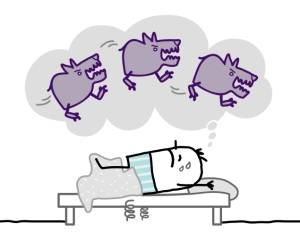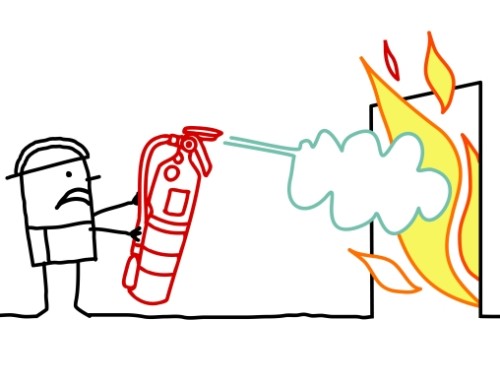In this article, I discuss distinctions between exposure to a traumatic event and suffering from post-traumatic stress disorder.
Estimated reading time: 3 minutes.
I often hear people use the terms trauma and post-traumatic stress disorder (PTSD) interchangeably. I also often hear people indicating that suffering from a trauma means that the person has PTSD. Are the terms trauma and post-traumatic stress disorder equivalent in meaning? Does suffering from a trauma mean that the person has PTSD? I will provide answers to these questions along with a discussion in the following sections.
Trauma versus PTSD
Trauma, also called a traumatic event, refers to someone experiencing or witnessing a situation involving actual or threatened death or serious injury. Being physically or sexually assaulted, being involved in an automobile accident, being the victim of a home invasion, having served in a war, or having witnessed death and destruction—such as in the 2001 World Trade Centre attacks–are examples.
PTSD refers to various symptoms a person experiences because of being exposed to a traumatic event or a series of traumatic events. These include having an arousal or startle response in the presence of objects or people which remind them of the traumatic event, experiencing negative thinking along with negative mood states such as depression and anxiety, avoiding thinking or talking about the trauma as well as avoiding encountering reminders of the trauma, and re-experiencing the event through intrusive thoughts, dreams or flashbacks.
In addition to experiencing the above symptoms, for a person to be diagnosed with PTSD there must be two additional criteria met. One is that the symptoms have a significant negative effect on major areas of the person’s life such as work and relationships. Secondly, the symptoms must be having these negative effects at least one month after the person experienced the traumatic event.
Does experiencing a trauma mean that the person has PTSD?
The distinction between trauma and PTSD in the previous section indicates that experiencing a trauma does not mean that a person has PTSD. Some people assume that experiencing trauma equates to their having PTSD because they notice one or more of the above PTSD symptoms present after the person has experienced the traumatic event.
However, note that PTSD is only diagnosed if the symptoms last for a least a month following the experience of the traumatic event. Therefore. experiencing a trauma does not mean that the person has PTSD.

Does experiencing a trauma mean that the person will eventually be diagnosed with PTSD?
Given that experiencing a trauma does not mean that the person has PTSD, it is then reasonable to inquire whether suffering from a trauma means that the person will eventually be diagnosed with PTSD. That is, do the symptoms which a person experiences shortly after the traumatic event necessarily last until a month has elapsed and have a significant negative effect on the person’s life at that point?
The answer to this question is ‘not necessarily’. That is, suffering from a traumatic event does not necessarily mean that the person will eventually be diagnosed with PTSD.
Research on this question indicates that over 90 per cent of people who experience traumatic events recover from them without eventually developing PTSD. So, a more specific answer to the question would be that, although some people who suffer trauma are eventually diagnosed with PSTD, the vast majority recover from the event without developing PTSD.
Two types of trauma therapy
This leads to there being two types of trauma therapy for which clients seek help. One is to help clients suffering from PTSD heal from this disorder. The second is to help clients who have recently experienced a traumatic event facilitate processes to heal from the event without developing PTSD.
The news is encouraging on both fronts. That is, if someone does eventually develop PTSD after experiencing a traumatic event, there are effective therapy treatments which can help a person to heal from this disorder. In addition, there are steps a person can take after experiencing a traumatic event which can make it less likely that they will eventually develop PTSD.
I have already written and posted several articles discussing various therapy skills which can help a person heal from PTSD. However, I have not yet discussed in my blog steps which a person can take shortly after experiencing a traumatic event to help them prevent the development of PTSD. I will do so in my next article.
May you recognize that experiencing a traumatic event does not mean that PTSD will necessarily follow,
Dr. Pat




Leave A Comment